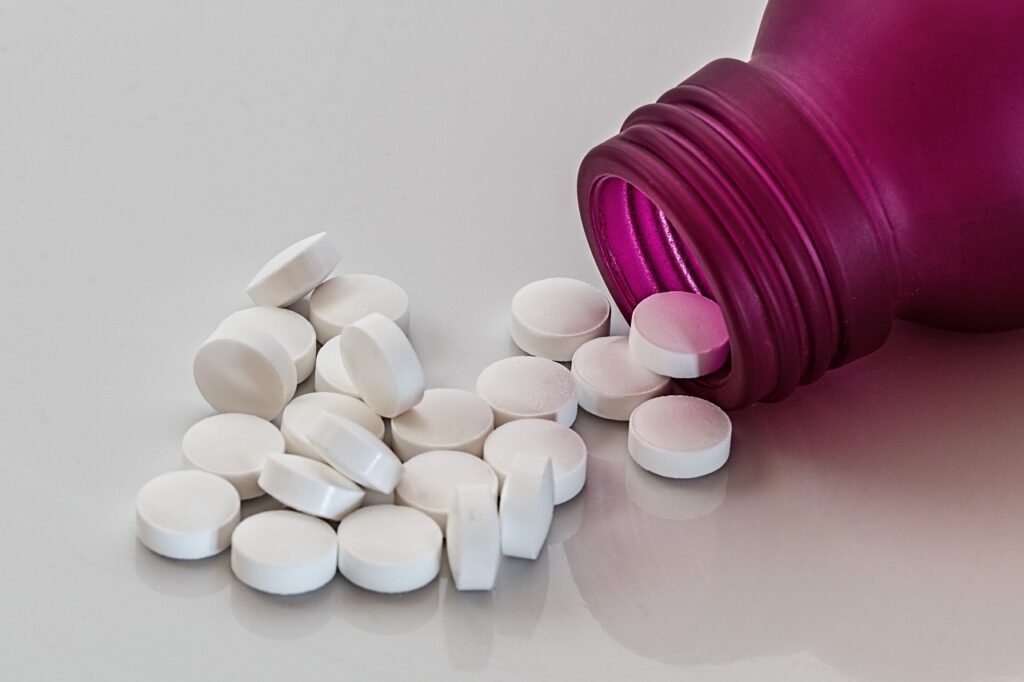20+ Years Experience
Specialist Inpatient Rehabilitiation

Imagine regaining control over your life, free from the grasp of drug addiction.
It may seem like a distant dream, but with determination, the right support, and drug addiction help, it can become a reality.
In this blog post, we’ll explore the complexities of drug addiction, the impact it has on individuals and their loved ones, and the various drug treatment options available.
Along the journey, we’ll provide valuable insights and tools for building a strong support network, developing healthy coping strategies, and maintaining long-term recovery with the aid of drug addiction help.
Drug addiction affects millions of people worldwide, often leading to devastating consequences on their physical and mental health, relationships, and overall quality of life.
The road to recovery may seem daunting, but with the right assistance and support, transformation is possible for drug users.
The first step to overcoming drug addiction is acknowledging the issue and deciding to make a change, which may involve seeking professional treatment.
While any substance has the potential to be problematic, the abuse of illegal or certain prescription drugs can lead to alterations in the brain, resulting in intense cravings and an uncontrollable urge to use.
Addressing drug use is crucial for improving well-being, enhancing security, and achieving better health.
Furthermore, seeking support is essential for effecting positive changes and attaining happiness, safety, and health.
The causes of drug addiction are complex and multifaceted, with no single factor determining who will become addicted.
Genetics can play a role in drug addiction, as certain genetic factors may increase a person’s susceptibility to developing an addiction.
Environmental factors, such as one’s home life, peer support group, and access to drugs, can also influence an individual’s risk of developing an addiction.
Mental health problems, such as depression, anxiety, and bipolar disorder, can contribute to an increased risk of drug addiction.
These disorders may lead individuals to self-medicate with drugs, creating a vicious cycle where drug use exacerbates mental health problems and vice versa.
Understanding the various factors that contribute to drug addiction is crucial for tailoring effective treatment plans and addressing the root causes of addiction.
The signs of drug addiction can vary among individuals, but some common indications include an inability to perform daily activities without the use of drugs, the presence of withdrawal symptoms, and alterations in behaviour.
Persisting in substance abuse can quickly become a grave issue, leading to a range of long-term difficulties.
Moreover, drug triggers and cravings, which refer to the intense desire to use drugs, may arise during the rehabilitation process and pose challenges for individuals seeking addiction recovery.
Drug detoxification, the process of safely eliminating toxic substances from the body in a medically controlled environment, can be an essential first step in the drug treatment process.
By recognising the symptoms and effects of drug addiction, drug users and their loved ones can be better equipped to seek appropriate drug treatment and support.
Obtaining professional help for drug addiction is a critical step in the recovery process.
Drug addiction treatment can be provided in various settings, such as outpatient, inpatient hospital, or residential rehabilitation.
To find the right assistance, individuals can consult with their general practitioner, a local drug treatment facility, or various helplines and support services.
Choosing the right treatment provider is essential for a successful recovery, as it allows for a tailored approach that addresses one’s individual circumstances.
Factors such as location, cost, and treatment approach should be taken into consideration when selecting a provider.
The initial action to take when seeking professional assistance for drug addiction is to locate your regional service or a national institute.
A key worker, a medical professional such as a doctor, nurse, or drug worker, can collaborate with you to create a drug treatment plan and provide ongoing support.
When determining an appropriate treatment provider, consider factors like location, cost, and treatment approach.
Ensuring that the chosen provider aligns with your needs and preferences can significantly impact the effectiveness of the drug addiction treatment.
To make the most of your first appointment with a treatment provider, it’s crucial to prepare by gathering information about your drug use, personal situation, and support network.
This may include details about your medical history, prior treatment attempts, and a list of medications you are currently taking.
Being candid and forthcoming with your healthcare provider about your drug use is essential during your appointment.
This openness allows your provider to better understand your situation and tailor a treatment plan that addresses your unique needs and challenges.
Drug addiction treatment options are vast and tailored to the individual’s particular situation and addiction.
A typical treatment plan may involve a combination of medication-assisted therapies, counselling, and inpatient or outpatient programmes.
It’s generally recommended that all forms of addiction, including drug and alcohol addictions, be treated for a period of 28 days.
By exploring various treatment options, individuals can find the most appropriate and effective approach for their specific needs. This may include:
Medication-assisted treatment involves the use of medications in conjunction with counselling and behavioural therapies to provide a comprehensive approach to the treatment of substance use disorders.
For opioid addiction, substitute drugs such as methadone or buprenorphine may be utilised to manage withdrawal symptoms and assist in the recovery process.
Drug detoxification is typically the initial step in addiction treatment, helping to eliminate drugs from the body and manage withdrawal symptoms.
Medication-assisted treatment can be a vital component of the recovery process, ensuring that individuals can safely and effectively manage their symptoms and transition to a drug-free life.
Therapy and counselling play a crucial role in drug addiction treatment by addressing the core issues that contribute to substance abuse.
This form of treatment typically involves individual, group, and/or family therapy to identify the causes of drug use, rebuild relationships, and develop better coping strategies.
Various therapeutic techniques, such as cognitive behavioural therapy (CBT), dialectical behaviour therapy (DBT), transactional analysis (TA), and mindfulness, may be utilised in residential drug rehab.
The advantages of cognitive behavioural therapy and counselling in addiction treatment include:
Inpatient and outpatient treatment programmes are two types of treatment options for drug addiction.
Inpatient treatment programmes, also known as residential treatment, involve residing at a treatment facility for a predetermined period of time to receive intensive therapy and support for addiction, while outpatient addiction treatment programmes involve attending regular therapy sessions at a treatment centre or in the community.
Inpatient programmes offer a more intensive level of care and support, whereas outpatient programmes accommodate the individual’s needs and lifestyle more flexibly.
By considering the unique requirements, preferences, and circumstances of each person, the most appropriate treatment programme can be selected, ensuring the greatest chance of success in recovery.
If you would like to speak to our team about residential treatment for alcohol or drug use, please complete our enquiry form today.
A strong support network is a vital component of the recovery process, providing emotional and practical assistance to those overcoming drug addiction.
Involving close friends and family members in the recovery process can offer emotional sustenance and motivation, both of which are paramount for a successful recovery.
Additionally, attending peer support groups, such as Alcoholics Anonymous (AA), Narcotics Anonymous (NA), or SMART Recovery, can provide a sense of community and understanding, fostering a secure and encouraging atmosphere for those in recovery.
Self-help groups are a great way to find support when struggling with drug use and alcohol addiction.
For more information on self-help groups, please speak to our experts.
Family and friends play a crucial role in the recovery process, offering emotional support, participating in therapy sessions, and establishing a safe and nurturing atmosphere.
By attentively listening without prejudice, offering emotional support, and aiding in the establishment of a secure and supportive atmosphere, loved ones can make a significant impact on the individual’s journey to recovery.
The inclusion of family and friends in the recovery process can be a source of emotional sustenance and motivation, bolstering the individual’s determination to overcome addiction and maintain a drug-free life.
If you are worried about a friend or family member and their drug and alcohol addiction, please speak to our professionals today.
Peer support groups serve as an invaluable resource for those seeking assistance and more support in their recovery process, providing a secure and non-judgmental atmosphere where individuals can express their experiences, acquire encouragement, and gain knowledge from those who have faced similar difficulties.
Examples of such peer support groups for drug addiction recovery include Alcoholics Anonymous (AA), Narcotics Anonymous (NA), Cocaine Anonymous (CA) and SMART Recovery.
By attending these groups, individuals can cultivate a sense of community and belonging while gaining valuable support from those who understand the challenges of overcoming drug addiction.
Developing healthy coping strategies is essential for managing stress and avoiding relapse during the recovery process.
Engaging in activities that promote emotional well-being and help manage negative emotions, such as:
Can contribute to a successful recovery.
By addressing problems without resorting to addiction and discovering strategies to confront negative feelings as they emerge, individuals can better maintain their recovery and prevent relapse.
Practising mindfulness and stress management techniques can help individuals effectively regulate their emotions, diminish cravings, and maintain focus on their recovery objectives.
Examples of mindfulness and stress management techniques include:
By incorporating mindfulness and stress management practices into their daily routines, individuals can stay focused on their recovery objectives, regulate their emotions, and diminish desires, ultimately contributing to a successful recovery.
Engaging in meaningful activities can help individuals build a rewarding, drug-free life, providing an alternative to drug use.
Some examples of these activities include:
These activities can offer a sense of purpose, enhance self-esteem, and provide an alternative to drug use.
By participating in activities that foster creativity, stimulate the imagination, and promote personal growth, individuals can cultivate a fulfilling life without the need for drugs, further strengthening their recovery journey.
Preventing relapse and maintaining long-term recovery requires:
By following these steps, individuals can minimise their risk of relapse and maintain sobriety.
In the event of a relapse, it’s important to remember that setbacks are a natural part of the recovery process.
Upon regaining sobriety and ensuring safety, individuals can analyse the relapse’s initiating factors, learn from the experience, and use it to bolster their dedication to recovery.
Recognising the people, places, and situations that may trigger drug cravings is crucial for maintaining recovery and preventing relapse.
By being aware of these triggers, individuals can develop strategies to avoid them or cope with them in a healthy manner.
Avoiding certain people or places, engaging in healthy activities, and developing healthy coping skills can help individuals manage their triggers and maintain their recovery.
By being proactive and addressing potential challenges, individuals can better prepare themselves for the journey ahead and minimise the risk of relapse.
A comprehensive relapse prevention plan is vital for maintaining long-term recovery.
This plan should include measures for dealing with cravings, circumventing triggers, and obtaining assistance from your support network.
By committing to a relapse prevention plan and actively engaging in ongoing support, healthy coping strategies, and a plan for addressing setbacks, individuals can maintain their recovery and build a fulfilling life free from drug addiction.
Overcoming drug addiction is a challenging journey, but with the right support, treatment, and determination, it is possible to regain control and build a fulfilling, drug-free life.
By understanding the causes and effects of drug addiction, seeking professional help, exploring treatment options, building a strong support network, developing healthy coping strategies, and preventing relapse, individuals can create a solid foundation for lasting recovery and transform their lives for the better.
A GP is a good place to start for support with drug or alcohol use, as they can discuss your problems and provide referrals to treatment services.
Pharmacies, drug services and mental health services can also provide support.
You may be able to self-refer to more support services if you do not feel comfortable talking to a GP.
Turning Point is a social enterprise and charity based in the UK that offers support to individuals facing mental health issues, substance use, homelessness, learning disability and more.
Through direct services, campaigns and our digital therapy tool My Turning Point, we work to achieve positive outcomes for those we support.
We provide tailored personalised care five days a week, including one evening for those in employment.
Opioids, nicotine, acamprosate, disulfiram, bupropion and varenicline are FDA-approved drugs used to treat substance use disorder.
Drug addiction is caused by a range of factors, such as genetics, environmental influences, mental health disorders, social and economic factors, and early exposure to drugs.
These factors can interact in complex ways, making it difficult to identify a single cause of addiction. For example, a person may have a genetic predisposition to addiction, but environmental factors such as poverty or peer pressure can increase the risk of developing an addiction.
Inpatient treatment programmes involve staying at a facility for intensive therapy, while outpatient addiction treatment programmes consist of regular sessions at a facility or in the community.
There are a range of other services that we can provide. Have a look at the list below for more information:




















We Aim To Reply To All Enquiries With-in 24-Hours